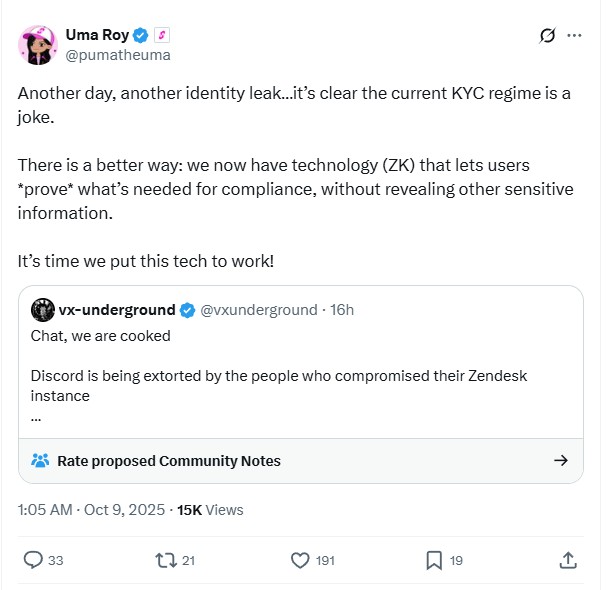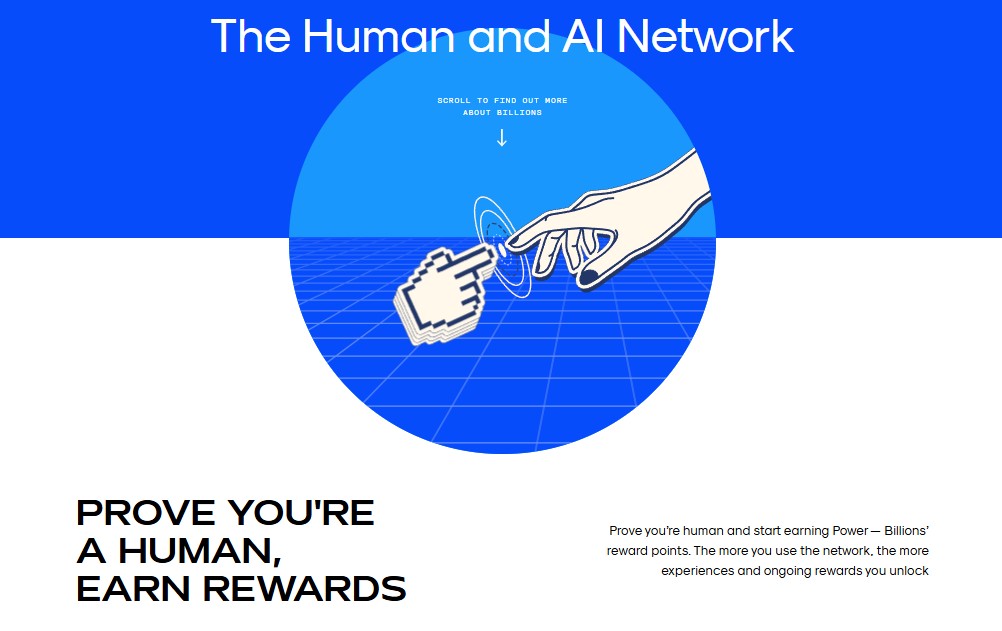The idea behind Worldcoin (now called World) is an excellent one: without some way to verify human-based accounts, the internet will be completely overrun with AI bots.
To a large extent, it already is: More than half of web traffic now comes from unidentified accounts, and Facebook and X are drowning in AI slop and pointless reply guys. More worryingly, hostile countries are using AI bots and content to divide the population of open and democratic societies.
And if you are already worried about the UK’s mandatory digital ID plan, then World ID should also be on your radar. Apart from those creepy eyeball scanning Orbs, is it really a good idea to implement a global identity system co-founded by the CEO of the world’s largest private company, OpenAI?
The project has raised significant privacy and ethical concerns, with Canadian public broadcaster CBC describing World’s aims as utopian but not without raising “dystopian fears.” Techmonitor and CoinDesk have both reported that critics of the project call it “Orwellian.”
While these fears are somewhat overblown, there are genuine concerns with how World has been set up
The project’s designers have attempted to counter those fears with strong privacy protections. The system doesn’t retain biometric data; instead, it uses zero-knowledge proofs to create a cryptographic hash that proves a user is unique without revealing who they are or tying that ID to a name and address.
One World ID: is it a feature, or a bug?
World no doubt thinks of it as a feature, not a bug, but each verified human is issued a single World ID, which can be used to sign into other sites anonymously.

In theory, third parties cannot determine a user’s identity from their online activity, but critics worry that having a single World ID increases the chances that various governments could legislate to give themselves access, and reverse engineer identities and track citizens’ activities using this identifier.
“In the real world, pseudonymity generally requires having multiple accounts,” warned Ethereum creator Vitalik Buterin earlier this year, “so under one-per-person ID, even if ZK-wrapped, we risk coming closer to a world where all of your activity must de facto be under a single public identity.”
In the search for an alternative solution that aligns more closely with cypherpunk and crypto ideals, AI Eye caught up with Evin McMullen, co-founder of Billions Network, in Singapore last week.
It’s part of a new wave of decentralized identity projects that prioritize privacy and pseudonymity through zero-knowledge proofs and selective disclosures, including zkKYC by Polygon, Sismo Protocol, and Self Sovereign Identity (SSI) by Everynum, and Penverse. A forthcoming Ethereum L2 called Aztec utilizes a similar combination of device-generated proofs to make RWAs more permissionless, while remaining AML-compliant.
Billions Network, featuring Privado ID, aka Polygon ID
Billions Network began life six years ago as Polygon ID, before rebranding to Privado ID. It later raised $30 million from Polychain, Coinbase Ventures and Polygon Ventures as Billions Network.
It faces an uphill battle to gain the edge over World, however, with Billions Network’s 2 million users a mere drop in the bucket to World’s 17 million.
However, the underlying Circom technology stack Billions created is open source and permissionless and has been employed by 9,000 sites, including TikTok, HSBC and Deutsche Bank.
“One of the cool things about our tech stack is that, because it is open and permissionless, folks around the world are able to pick it up and utilize it for many different use cases. One of which includes the local newspaper in Barcelona [Ara] is leveraging our libraries to be able to prove the origin, provenance and original nature of images that they publish.”
The system aims to strike a balance between verification and privacy. Users can verify themselves using their own phone to generate zero-knowledge proof of identity documents and send the proof to third parties instead of the documents.
Also read: ‘Accidental jailbreaks’ and ChatGPT’s links to murder, suicide
Explain zero-knowledge proofs like I’m five
A zero-knowledge proof is basically magical math that can prove a fact while keeping the details hidden — like proving you’re over 18 without sharing your date of birth, or proving you’re a resident of the UK and allowed to work there, without revealing your name and address.
Much of the controversy over the Digital ID scheme in the UK (reportedly introduced to make it tougher for illegal immigrants to work there), or enforcing age limits for social media in Australia, or keeping kids away from porn in various US states, is because other users are worried about losing their privacy when verifying their identity. ZK-based systems potentially solve both issues.
“We make it easy for you to prove who you are — things like the fact you’re a person, a unique human, not a bot, over a certain age, things like your KYC status, from the comfort of your own device,” McCullen says. The system uses the updated Decentralized Identifiers (DIDs) open standard from the World Wide Web Consortium — “the good people who brought us the internet.”

Users can create multiple identities and pseudonyms via its Profiles mechanism, which generates new DIDs with an anonymous, random and unlinkable nonce. That bit of jargon just means there’s no centralized registry linking your various accounts together.
DIDs also allow individuals to rotate the keys behind their identification, which McMullen explains is similar to updating your password, and to associate multiple identities together.
“So being able to have different facets to your personality that are all controlled by you, proveably you, but do not necessarily all disclose the same set of data to the same set of parties.”
Billions Network: Verifying users with crypto ideals
McMullen spent four years working at Consensys, co-founded by Ethereum’s Joe Lubin, so she’s in tune with the crypto ethos around pseudonymity and privacy.
“I agree with Vitalik that your identity should not be tied to keys you cannot rotate, and furthermore, you cannot rotate your eyeballs [referring to World’s Orbs]. And so that persistent identifier, inescapably, is very limiting.”
While these systems are promising, some problems remain to be solved, and there are tradeoffs to make.
For example, teenagers turning 16 who are finally allowed to access social media under the new Australian laws often don’t have the requisite driver’s license or passport. A partner of Billions called Privately uses a local AI model on your device, along with its camera, to estimate age from facial scans. McMullen says it’s now accurate to within six months and is being trialed as part of the European blockchain sandbox.

Fighting AI bots slightly less convenient with Billions Network
Having totally unlinkable accounts and rotating keys means that, in theory, a user could spin up and verify a million social media accounts and set up an AI bot to post from each one. This is one of the issues that no doubt led World to settle on providing just a single World ID for each human.
Billions’ approach is to get social platforms to check if a real human is behind the account by switching on the camera.
“What we can do there is actually just a liveness check to ensure, via opening the camera, that there is indeed a live human being on the other side,” she says, explaining that this generates a zero-knowledge proof credential applied to the account, which would expire after a set time, necessitating another check.
So slightly more annoying for users, but arguably worth it to avoid the potential Big Brother single global ID scenario.
A related approach is to assign reputational scores to pseudonymous identities, which can be based on anything from social following to someone’s investment history. This allows counterparties to make judgments about otherwise anonymous accounts.
Billions has worked on providing Sybil resistance for a variety of crypto projects’ airdrops. The term simply means preventing users from spinning up a large number of bots to collect additional tokens in the airdrop. Users open their camera and generate a unique hash from a picture of their face that ensures they can’t make a second claim, at least not without getting plastic surgery.
While Billions Network plays nicely with blockchain, it’s not required to use the underlying tech. The network does offer Power reward points for engaging with the system and conducting activities, which will be used to determine eligibility for its own airdrop in December. Just don’t try and claim more than once.


Andrew Fenton
Gaming giants in talks with Immutable to launch token: Web3 Gamer
Immutable’s Robbie Ferguson says gaming giants are gearing up to launch tokens: plus why saying “Web3 gaming is dead” is bullish: Web3 Gamer.
Read moreBitcoin’s ‘Great Accumulation,’ Binance.US resumes fiat withdrawals, and other news: Hodler’s Digest, June 18-24
Bitcoin’s “Great Accumulation” period has begun, Binance.US withdrawals resume, and the U.K. prepares for its upcoming crypto regulation.
Read moreBrandt says Bitcoin yet to bottom, Polymarket sees hope: Trade Secrets


